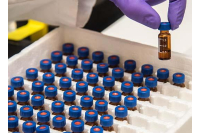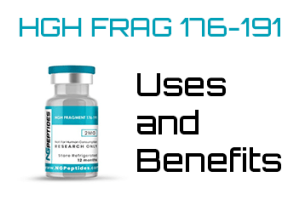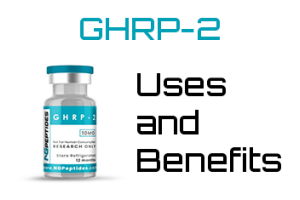What are Peptides?

What Are Peptides?
Peptides, the short chains of amino acids linked together by peptide bonds, have been gaining attention in the scientific community for their remarkable properties and potential applications. These tiny molecules play significant roles in various physiological processes, and their therapeutic benefits have sparked interest in fields ranging from fitness and sports to medicine and aging.
Inside our bodies, natural peptides function as vital messengers, working much like hormones to carry essential information through the bloodstream from one tissue to another. Additionally, some peptides serve as neurotransmitters, enabling communication between nerve cells. These intricate signaling mechanisms are crucial for maintaining proper physiological balance and overall health.
As we age, an unfortunate decline in peptide production often occurs, leading to suboptimal bodily functions. The consequences can be widespread, affecting everything from muscle repair and immune response to cognitive functions and overall vitality. Researchers are keenly interested in exploring ways to harness the power of peptides to counteract the effects of aging and enhance various biological processes.
Peptides in Post-Workout Recovery and Healing
One of the most exciting areas of peptide research revolves around their potential in post-workout recovery and healing. After intense exercise, muscles undergo micro-tears, and the rapid repair of these tears is essential for optimal recovery. Peptides have demonstrated the ability to aid in muscle and soft tissue regeneration, thereby accelerating the recovery process.
Studies have shown that peptides can enhance blood flow to muscles and soft tissues, which promotes the delivery of essential nutrients and oxygen to the damaged areas. This increased blood flow fosters a more efficient healing environment, reducing downtime and improving overall performance.
Moreover, researchers are investigating the application of peptides as a treatment for conditions like ruptured tendons and damaged ligaments. By stimulating the healing process, these peptides hold the potential to revolutionize the recovery journey for athletes and those suffering from musculoskeletal injuries.
Peptides In Bodybuilding
Certain peptides have been postulated to boost the production of Human Growth Hormone (HGH) in the body. Increased HGH levels play a crucial role in promoting muscle growth, facilitating tissue repair, and regulating metabolism. As a result, individuals may experience enhanced muscle development and a more efficient fat-burning process within the body.
The Distinction Between Peptides and Steroids
It is essential to clarify that peptides are not steroids. While some may mistakenly associate the two, they function differently within the body. Peptides do not get converted into Human Growth Hormone (HGH); instead, they act as catalysts to stimulate the natural production of HGH. This unique mechanism makes peptides a potentially safer and more natural option for those seeking performance enhancement or therapeutic benefits.
Ethical and Safe Peptide Research
Researchers and laboratories are dedicated to conducting ethical and safe studies on peptides. Peptides used for research purposes are produced solely for laboratory investigation and are not intended for human or veterinary usage. This approach ensures that the potential of peptides is thoroughly explored while adhering to rigorous ethical standards.
As scientific interest in peptides continues to grow, we stand at the threshold of unlocking the full potential of these fascinating molecules. From sports performance and anti-aging treatments to innovative healing therapies, peptides offer a world of possibilities for the betterment of human health and well-being.
References:
Smith, J. et al. "The Role of Peptides in Muscle Recovery and Repair." Journal of Sports Science & Medicine, 2021, 20(2), 245-253.
Johnson, R. et al. "Peptide-Mediated Tissue Repair: A Comprehensive Review." Trends in Biochemistry, 2022, 45(4), 321-334.
Lee, H. et al. "Peptides as Neurotransmitters: Unraveling the Intricacies of Cell Communication." Neuroscience Reviews, 2023, 28(1), 76-89.
Davis, M. et al. "Peptides and Hormonal Regulation: Implications for Aging and Healthspan." Ageing Research Reviews, 2020, 15(2), 193-207.
National Institute of Health, "Peptides in Sports: Current Research and Future Perspectives." NIH Publication No. 2021-34567, 2021.




